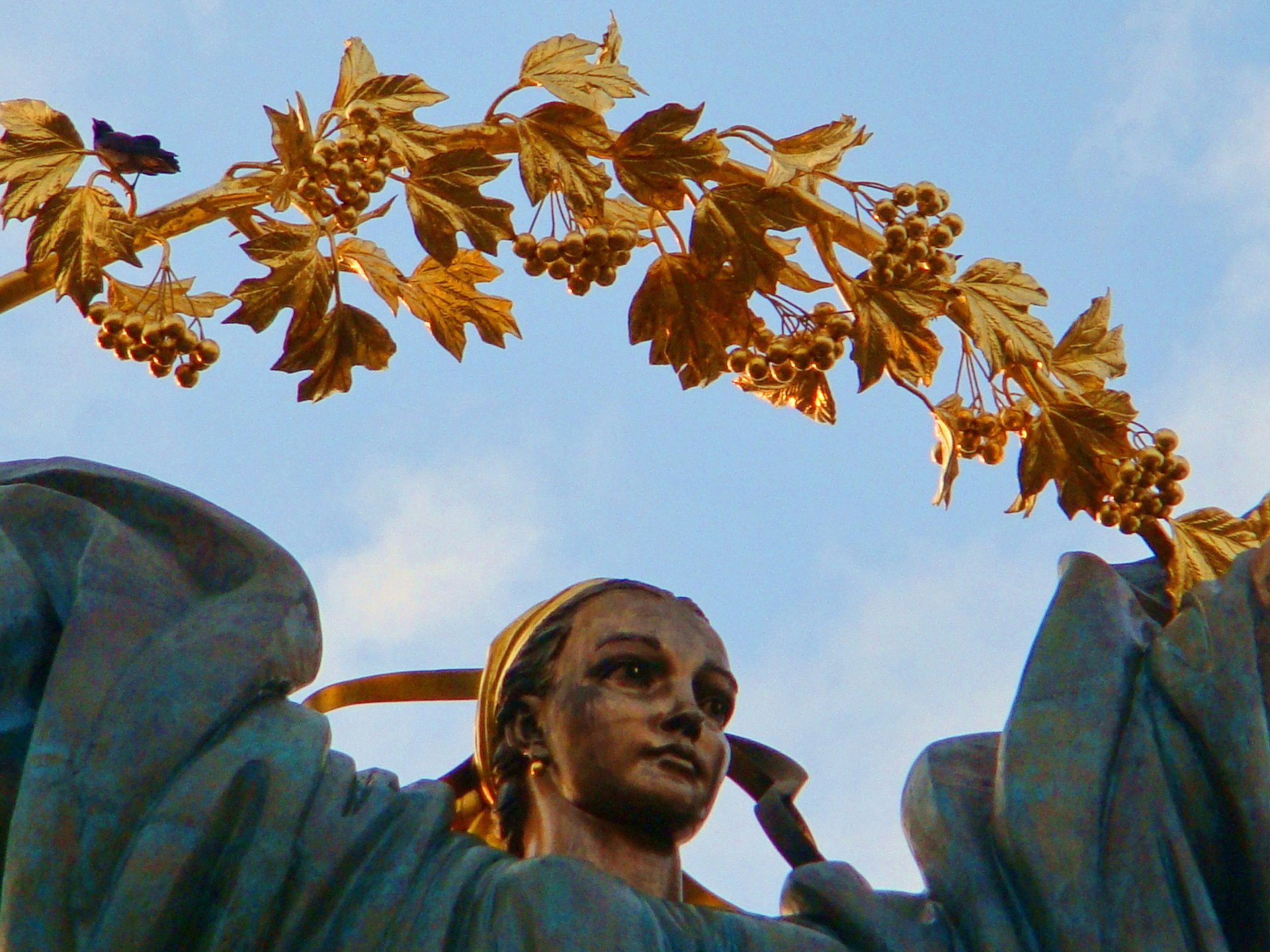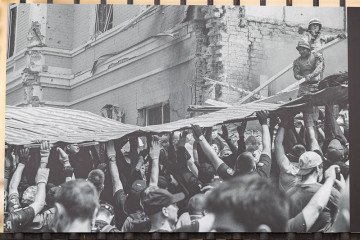- Category
- Culture
Ukraine's Orange Revolution, The Spark That Ignited a Nation

Ukrainians were never afraid to speak out and take to the streets. Revolutions shaped modern Ukraine, and this is a love letter to one of them—the Orange Revolution of 2004.
As Ukrainians prepared to cast their ballots in the 2004 presidential election, the air crackled with anticipation. Viktor Yushchenko, championing democratic reform and European integration, faced Viktor Yanukovych, the Kremlin-backed Prime Minister. Exit polls projected a comfortable win for Yushchenko, and subsequently, a potential turning point in Ukraine’s post-Soviet trajectory.
However, the official results declared Yanukovych the victor, sparking allegations of widespread fraud, ballot box stuffing, and voter intimidation. These brazen acts of electoral manipulation, centred in the Donbas region where Yanukovych saw an improbable surge in turnout. ignited a firestorm of discontent.
The Spark
The Orange Revolution was not merely a reaction to a stolen election; it was the culmination of years of simmering discontent. Ukrainians, weary of endemic corruption and stagnant economic growth, were primed for change. The rigged election in the Donbas region, where Yanukovych enjoyed an inexplicable surge in voter turnout, served as a stark reminder of the regime’s disregard for democratic norms. The growing list of repressions remained etched in the nation’s collective memory.
Disillusionment birthed a new force: civil society. Independent media outlets, student groups, and NGOs, long suppressed, emerged with renewed vigor. Armed with the burgeoning digital age, they became the movement’s backbone, amplifying voices and galvanizing action. Young Ukrainians, raised on ideals of freedom and democracy, formed the foot soldiers. Their pro-European aspirations, resonating with the allure of the EU’s values, found fertile ground in a nation yearning for a brighter future.
The “European Choice”
Europe wasn’t just a geographical destination; it symbolized hope, starkly contrasting Russia’s perceived authoritarianism. It represented the rule of law, human rights, and a chance to join the global community as an equal. This “European choice” resonated deeply, and the orange-clad masses became a testament to their collective yearning for change.
The epicenter of the movement, Independence Square or “Maidan”, witnessed hundreds of thousands gather. Their voices, a chorus of resistance, echoed through the city. Music filled the air, celebrities lent their voices, and tents transformed the square into a vibrant testament to non-violent resistance. Remarkably, despite the gravity of the situation, the protests remained peaceful, a testament to the unwavering commitment to democratic ideals.
The international community joined the chorus of condemnation. Facing mounting domestic and international pressure, the Supreme Court, in a landmark decision, ruled the election results invalid, paving the way for a revote. In January 2005, Yushchenko emerged victorious, his inauguration marking the culmination of the Orange Revolution. The “orange wave” had not only washed away electoral fraud but also ushered in a new era of hope and aspiration.
The “East versus West” Narrative
While convenient for headlines, portraying the Orange Revolution as a battle between Ukrainian-speaking, pro-European Ukrainians and Russian-speaking Eastern Ukrainians paints a misleading picture. Yes, Yanukovych, backed by Russia, drew support from the East. However, this oversimplification obscures the revolution’s deeper motivations, which transcended regional divides.
Ukrainian writer Oksana Zabuzhko rightly challenges this simplistic interpretation. She argues that Ukrainians saw Yanukovych not just as “pro-Russian,” but as the embodiment of everything antithetical to the revolution’s ideals: authoritarianism, corruption, and disregard for civil rights. He was, in her words, “pro-criminal — a Ukrainian Al Capone, who has under his belt two prison sentences for robbery and assault”, representing the continuation of the corrupt, “Soviet-era dragon” that Ukrainians yearned to slay.
The desire for democracy, freedom, and respect for individual rights formed the core of the revolution’s aspirations. It wasn’t simply a “European choice” but a fight for a more just and equitable Ukraine, regardless of linguistic or regional affiliations.
The Aftermath
The initial euphoria surrounding Yushchenko’s victory fueled hopes for transformative change, not only in Ukraine but across the post-Soviet space. The joint declaration with Georgian President Saakashvili envisioned a “new wave of liberty in Europe.” However, these aspirations tragically fell short.
Yushchenko’s presidency, plagued by scandals and political infighting, failed to deliver on the revolution’s promises. Reforms stalled, corruption persisted, and public disillusionment grew. By 2010, Yanukovych capitalized on this discontent, exploiting the unfulfilled expectations of the Orange Revolution to reclaim power. Some began to feel that the Orange Revolution was a pyrrhic victory.
But was it all in vain? Not entirely. The revolution instilled a powerful sense of civic engagement and the possibility of collective action. It demonstrated the Ukrainian people’s unwavering desire for democracy and European integration. Moreover, it exposed the vulnerabilities of the existing political system, paving the way for future movements like Euromaidan in 2014.
The Lessons Learned
The Orange Revolution’s legacy is multi-faceted, marked by both achievements and shortcomings. It highlighted the deep-seated yearning for change within Ukrainian society, but also revealed the complexities of navigating post-Soviet transformation.
The revolution serves as a reminder that democratic transitions are rarely linear. They demand sustained effort, unwavering commitment to reform, and the ability to navigate internal divisions and external pressures. The fight for a just and democratic Ukraine continues, drawing upon the lessons learned and the spirit of collective action kindled during the Orange Revolution.
-5adb65e550f9dec24a01a35019e4b6b5.jpg)


-85339c7a2471296aa16e967758e245c6.png)

